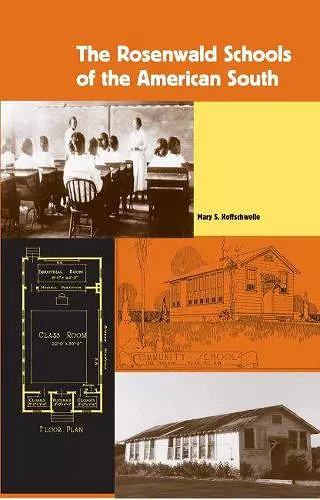The Rosenwald Schools of the American South
Format:Paperback
Publisher:University Press of Florida
Published:30th Jul '14
Should be back in stock very soon
This paperback is available in another edition too:
- Hardback£43.95(9780813029573)

Hoffschwelle tells the story of a remarkable partnership to build model schools for black children during the Jim Crow era in the South. The Rosenwald programme, which erected more than 5,300 schools and auxiliary buildings between 1912 and 1932, began with Booker T. Washington, then principal of Tuskegee Institute, who turned for financing to Julius Rosenwald, president of Sears, Roebuck & Company. By requiring communities to raise matching funds, the two men inspired a grassroots movement that built schools in 15 southern states.
The Rosenwald schools, scores of which still stand, exemplified the ideal educational environment designed for efficiency, making full use of natural light to protect children’s eyesight, and providing sufficient space for learning. Ironically, these schools, which represented the social centres of their African American communities, also helped to set standards for white schools.
Though the programme's funding ended with Rosenwald's death in 1932, many continued as public institutions. The National Trust for Historic Preservation named Rosenwald Schools to its list of America’s Most Endangered Historic Places in 2002. Hoffschwelle examines these buildings as exemplars for school architecture and design, as community institutions and partnerships, and as a means of formalising a state education programme that, finally, would include black children. This story of extraordinary generosity and sacrifice will interest scholars of American and African-American history, educators, school planners, and preservationists.
“The detail of the discussion, the reliance on considerable primary evidence, and the overall contribution of the understanding of the development of southern education make this a valuable addition to the historical literature on the South, Highly recommended.” - Choice
“The first comprehensive picture of the evolution of the programme from its origins at Tuskegee Institute in the 1910s until its termination in 1932, Hoffschwelle assesses the strengths and weaknesses of the programme and its larger significance for the status of African Americans and southern race relations in the early twentieth century.” - American Historical Review
ISBN: 9780813060330
Dimensions: unknown
Weight: 333g
432 pages